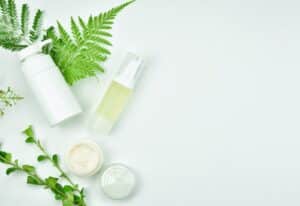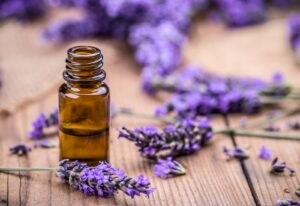There are a total of nine layers of skin on the body, and it serves as a protective barrier against harmful environmental factors such as pollution, UV rays, and bacteria. Additionally, it is the first line of defense against signs of aging and the first thing people see when they look at us. Therefore, it’s essential to take care of our skin, and one of the most important ways to do this is by following a healthy diet and lifestyle.
The connection between diet and skin health
The importance of diet and nutrition cannot be overstated when it comes to maintaining skin health. What we eat affects our skin’s appearance, hydration, and ability to fight off damage from environmental pollutants. A diet high in processed foods, sugar, and unhealthy fats can lead to wrinkles, dull skin, and an increased risk of skin problems such as acne, rosacea, and eczema. On the other hand, a diet rich in vitamins, minerals, and antioxidants can help improve the health and appearance of the skin.

Vitamins and Minerals for Skin Health
Vitamins and minerals are essential for maintaining healthy skin. Some of the key vitamins and minerals for skin health include:
Vitamin A: This vitamin helps to maintain the integrity of the skin and prevents signs of aging, such as wrinkles and fine lines. It also promotes skin cell turnover and helps to reduce the risk of skin problems such as acne.
Vitamin C: This antioxidant vitamin protects the skin from environmental pollutants and UV rays. In addition, it helps to maintain skin elasticity and firmness by increasing collagen production.
Vitamin E: Protects the skin from environmental pollutants and ultraviolet rays by acting as an antioxidant. It also helps to improve the skin’s natural moisture barrier, which helps to keep the skin hydrated and soft.
Zinc: This mineral is essential for maintaining healthy skin and helps to prevent acne, rosacea, and eczema. It also helps to promote wound healing and skin cell growth.
Iron: This mineral is important for maintaining healthy skin and helps to prevent skin problems such as anemia, which can cause the skin to appear pale and tired.
Antioxidants and Skin Health
Antioxidants are important for maintaining skin health as they help to protect the skin from damage caused by environmental pollutants and UV rays. Some of the best sources of antioxidants for skin health include:
Berries: Various berries, including blueberries, strawberries, and raspberries, are rich in antioxidants and help to protect the skin from damage.
Green Tea: The antioxidant content of green tea helps to protect the skin from damage caused by UV rays and environmental pollutants.
Nuts: Walnuts and almonds are packed with antioxidants and help to protect the skin from damage.
Leafy Greens: Green vegetables such as spinach and kale contain antioxidants and help to protect the skin from damage.
Hydration and Skin Health
Hydration is essential for maintaining healthy skin. When the skin is dehydrated, it can become dry, tight, and more prone to wrinkles and fine lines. Drinking plenty of water and consuming foods that contain a lot of water, such as fruits and vegetables, can keep the skin healthy and looking its best.
Additionally, it is important to limit the intake of alcohol and caffeine, as they can dehydrate the skin and lead to a dull, tired appearance. Both alcohol and caffeine can also disrupt the skin’s natural sleep cycle, leading to an increased risk of wrinkles and fine lines.
It is also important to remember that what we put on our skin is just as important as what we eat. Using high-quality skin care products, such as moisturizers and sunscreens, can help to protect the skin from damage and maintain its health and appearance. Additionally, using products that contain ingredients such as vitamin A and hyaluronic acid can enhance skin texture and appearance, reducing the appearance of fine lines, wrinkles, and dark spots.
Incorporating healthy habits, such as exercise and stress management, can also have a positive impact on skin health. Exercise helps to increase blood flow and promote the delivery of nutrients to the skin, while stress management can help to reduce the risk of skin problems such as acne and eczema, which can be exacerbated by stress.
It is also important to remember that everyone’s skin is unique and may react differently to different diets and skin care products. It is important to listen to your body and make changes to your diet and skincare routine as needed. If you have a specific skin concern, such as acne or eczema, it may be helpful to speak with a dermatologist for personalized advice and treatment options.
Diet and nutrition play a crucial role in maintaining skin health. By incorporating a diet rich in vitamins, minerals, and antioxidants, drinking plenty of water, and using high-quality skin care products, you can help to maintain the health and appearance of your skin and reduce the risk of skin problems. Additionally, incorporating healthy habits, such as exercise and stress management, can have a positive impact on skin health and overall well-being.









